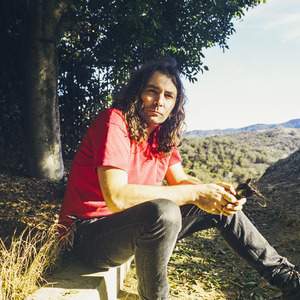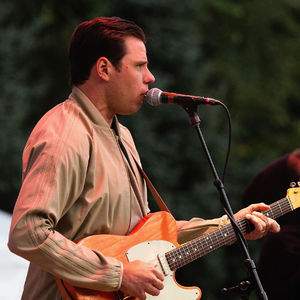War On Drugs Tour 2025
November 9, 2025 -
The War On Drugs tickets are available.
Everybody’s favorite band is already causing a lot of ruckus and sparking interest from lovers of quality music. It is on everybody’s radar right now. A big number of fans are gathering at these concerts for one single purpose – to enjoy the gift of music. It is no wonder that the best venues are always being selected for their concerts. There may be problems with getting the best tickets for these shows but with us you will be able to get a War On Drugs VIP package without any difficulties.
The biggest music event won’t pass you by and you will be able to savor it at the fullest! This tour is going to be huge and you can be a part of it. On our website you will find exclusive ticket offers.
We are sure that here you will find tickets for the best price. Getting tickets for the first row is also not a problem. Just follow the War On Drugs schedule carefully and make sure to book your tickets in advance. Affordable tickets are always sold out quickly, so just make a note in your calendar and contact us as soon as the tickets become available.
Every War On Drugs concert gives a unique experience that cannot be replicated anywhere else. The quality and energy of such events cannot be translated through a TV screen. This has to be experienced at least once and then you will understand why events like these happen everywhere. Simply check the concert’s details and see whether that’s exactly what you have been looking for.
You can check the ticket availability for your hometown concert right now! All the information regarding the War On Drugs tour 2025 can be found right here, on our website.
War On Drugs Tickets 2025 - 2026
War On Drugs VIP Packages 2025/2026


About War On Drugs
The war on drugs is a global campaign, led by the U.S. federal government, of drug prohibition, military aid, and military intervention, with the aim being the reduction of the illegal drug trade in the United States. The initiative includes a set of drug policies that are intended to discourage the production, distribution, and consumption of psychoactive drugs that the participating governments and the UN have made illegal. The term was popularized by the media shortly after a press conference given on June 18, 1971, by President Richard Nixon—the day after publication of a special message from President Nixon to the Congress on Drug Abuse Prevention and Control—during which he declared drug abuse "public enemy number one". That message to the Congress included text about devoting more federal resources to the "prevention of new addicts, and the rehabilitation of those who are addicted", but that part did not receive the same public attention as the term "war on drugs". However, two years prior to this, Nixon had formally declared a "war on drugs" that would be directed toward eradication, interdiction, and incarceration. Today, the Drug Policy Alliance, which advocates for an end to the War on Drugs, estimates that the United States spends $51 billion annually on these initiatives.
On May 13, 2009, Gil Kerlikowske—the Director of the Office of National Drug Control Policy (ONDCP)—signaled that the Obama administration did not plan to significantly alter drug enforcement policy, but also that the administration would not use the term "War on Drugs", because Kerlikowske considers the term to be "counter-productive". ONDCP's view is that "drug addiction is a disease that can be successfully prevented and treated... making drugs more available will make it harder to keep our communities healthy and safe".
In June 2011, the Global Commission on Drug Policy released a critical report on the War on Drugs, declaring: "The global war on drugs has failed, with devastating consequences for individuals and societies around the world. Fifty years after the initiation of the UN Single Convention on Narcotic Drugs, and years after President Nixon launched the US government's war on drugs, fundamental reforms in national and global drug control policies are urgently needed." The report was criticized by organizations that oppose a general legalization of drugs.














